#ZeroEmissionVehicles
Gas War: Republican States Sue EPA Over Californian Standards
Last week, a group of Republican attorneys general decided to sue the Environmental Protection Agency (EPA) over its decision to reinstate the waiver allowing California to set its own limitations on exhaust gasses and zero-emission vehicle mandates that would exceed federal standards.
The agency approved the waiver after it had been eliminated as part of the Trump administration’s fuel rollback on the grounds that it would create a schism within the industry by forcing automakers to produce vehicles that catered to the Californian market at the expense of products that might be appreciated in other parts of the country. However, Joe Biden’s EPA sees things differently and has aligned itself with the California Air Resources Board (CARB) in giving the state more leeway to govern itself in regard to emissions policing.
Joe Biden Wants to Bring Back Cash for Clunkers
Earlier this week, presumed Democratic nominee for president and former shut-in Joe Biden discussed some of the changes he’d make if elected. While most do not overlap with the automotive industry and would force your author to digress into rants about the perils of unchecked government spending, one item tied to his ambitious $2 trillion climate proposal is related directly to cars — and feels uncomfortably familiar.
Biden appears interested in bringing back the Car Allowance Rebate System (aka Cash for Clunkers) from the last recession, or at least a version 2.0 that accelerates electric vehicle adoption and development inside the United States.
Senate Considers $454 Billion Swap to Nationwide Electrification
On Thursday, Senator Chuck Schumer (D-NY) proposed a $454 billion plan aimed at converting the United States from a gasoline-powered nation to one driven primarily by electricity. Under the 10-year plan, automotive consumers would get rebates ranging from $3,000 to over $5,000 (based on efficiency), plus another $2,000 for low-income buyers, for the purchase of electric vehicles made in America.
“This proposal to bring clean cars to all of America will be a key component of the far-reaching climate legislation from Senate Democrats, and I’m proud it has a broad coalition of support,” the senior senator said in a statement.
Much like the haphazard way Schumer insists on wearing glasses at the outermost tip of his nose, begging for gravity to take them, his plan has us mildly concerned.
Los Angeles Has a Green New Deal of Its Own - No ICE Vehicles by 2050
The last decade is littered with announcements from cities, provinces, and states from across the globe, promising to ban internal combustion vehicles by a predetermined date. While the rules and timelines vary quite a bit, the locations are relatively consistent. China and Europe are the most eager to adopt a zero-emission strategy, with California doing most of the promising in North America.
This week, Los Angeles Mayor Eric Garcetti announced the city’s “ Green New Deal.” Styled to resemble the contentious stimulus program sponsored by Rep. Alexandria Ocasio-Cortez (D-NY) and Sen. Ed Markey (D-MA) that shares its name, LA’s plan is similarly concerned with promoting “environmental justice,” equity, green jobs, renewable energy, improved air quality, and sourcing clean water.
Transportation is also a major component of the deal, with the city suggesting that 100 percent of car sales will be zero-emission by 2050 and 50 percent of all trips could be completed by walking, biking, “micro-mobility” (scooters, etc), or public transit — reducing vehicle miles per capita by 45 percent in the same timeframe.
Invisible Markets: Mercedes-Benz Launches Hydrogen-powered GLC F-Cell
Mercedes-Benz says it has begun deliveries of the GLC F-Cell, a battery-electric vehicle that can run on hydrogen or a stored electrical charge. That would make it the most sensible hydrogen vehicle currently in existence, which isn’t saying much.
At any rate, it doesn’t really matter because you’ll probably never see one.
2019 Jaguar I-Pace Delivered Early to Average American Family
Jaguar has delivered its first I-Pace electric crossover in North America, a little ahead of next month’s retail sales, to a picture-perfect family living in Florida. Who are these fortunate environmentalists? None other than Lakewood Ranch residents Mark and Holly Pascarella, according to Jaguar Land Rover’s Tuesday press release and the multitude of auto outlets that reported it as news without commentary.
“When you have a family of five you always need space, so we were looking for an SUV,” explained Mr. Pascarella. “We’ve always had a seven-passenger SUV, but one of my daughters just went off to college, so now a five-passenger SUV will be large enough. When I looked at the I-PACE I could see that it was a typical first-class product made by Jaguar, with top of the line appointments and great looks. It doesn’t look like a typical SUV, and on top of that, being electric was very appealing.”
Based on Mark’s very natural and clearly unprompted manner of speaking, it certainly sounds like the perfect automotive product for families living in a city with an average household income of $100,991 — which, coincidentally, is exactly the case in Lakewood Range, Florida. Plus, it has that coveted electric appeal, allowing you to indicate you’re environmentally conscious when you aren’t firing up your other Jaguar’s 5.0-liter V8 every morning.
2019 Hyundai Kona Electric First Drive - Worthy Competition
Until recently, anyone wanting a purely electric vehicle capable of driving beyond the confines of a daily commute was stuck shelling out the big bucks. Then Chevrolet introduced the Bolt in 2016, proving that 200+ miles of range wasn’t out of the question. With most EV competitors achieving just over half that, it seemed like it might be awhile before we saw another mainstream nameplate surpass that achievement.
Keen to one-up the Americans (even though the Bolt was technically developed by GM Korea), Hyundai has come forward with the 2019 Kona Electric. This subcompact crossover replaces its standard four-cylinder and fuel tank for an electric motor and 64-kWh battery pack. The end result is a familiar platform with an unfamiliar powertrain that’s capable of 258 all-electric miles, according to the manufacturer. It also happens to be quite enjoyable to drive. The Kona even hums like an an angel at low speeds, something I found wildly entertaining as I wheeled it around Los Angeles.
If I had to be run over by a car, I would love for that noise to be the last thing I heard before the world went dark.
Los Angeles Finally Snubs Electric Vehicles, Clean Air Cars Have to Pay for HOV Lane
California has been bending over backward to encourage commuters to adopt zero-emission vehicles. Los Angeles County even went so far as to offer EV drivers the opportunity to become certified to access the express lane, even when riding solo, free of charge. This immediately caused issues and transportation officials announced on Thursday they were going to have to eliminate the program to reduce congestion.
Apparently, giving zero-emission vehicles free access to the carpool lane created an influx of traffic that it was no longer able to meet the federally mandated minimum speed of 45 mph during peak hours. Officials had become concerned after over two-thirds of California’s HOV lanes couldn’t maintain the minimum speed in 2016. However, that’s not entirely the fault of EVs. Drivers who have opted to pay for use of the toll lanes without passengers now account for around half of its daily traffic, pushing it past capacity. LA is worried that frequent slowdowns has resulted in commuters becoming less interested in buses and carpooling.
Auto Executives Secretly Believe Battery-electric Cars Aren't the Future
While fuel-cell technology is progressing in places like California and Japan, the rest of the world shrugged it off after the initial hype subsided. Since then, practically every automaker in existence has invested in battery technology and electrification. However, according to a recent survey, most auto executives secretly do not believe batteries will be the real breakthrough in electric mobility. Dealers feel the same way, but they’ve been less cagey on the matter.
Uh, what? Then why is everyone and their mother talking up plug-in cars and sweeping the fuel cell under the carpet?
Well, in addition to hydrogen having an abysmal fueling infrastructure almost everywhere, governments simply aren’t pushing it like battery power. Incentivizing plug-in cars has gone a long way to bolster the segment’s popularity and, with China mandating that a growing portion of all auto sales be battery-related, companies have to lean into what they already have. That said, many executives still seem to feel that hydrogen-powered cars have more to give the industry.
Let’s not get ahead of ourselves. Its time to talk about why auto dealers are so unhappy about the electric revolution.
Green for Green: California Governor Outlines $2.5 Billion Electric Vehicle Push
If California’s Jerry Brown is known for anything, it’s for continuing his familial legacy of governing the region for a weirdly long period of time and pressing for the proliferation of electric vehicles. While not all of the state’s EV initiatives have gone without a hitch (the LAPD’s unused fleet of battery powered BMWs springs to mind), Brown remains essential in keeping his neck of the woods on the forefront of alternative energy adoption.
Currently, California plans to place five million zero-emission vehicles on the road by 2030. The state previously set a target of 1.5 million ZEVs by 2025. That’s a massive increase, especially considering California only has about 350,000 examples currently plying its roads. Don’t worry, Brown has a plan to stimulate sales: $200 million worth of subsidies per year for the next eight years.
Ford, BMW, VW, Daimler Prepare European Charging Network
Established German automakers, partnered with Ford Motor Co., are beginning construction on their pan-European fast-charging network this year. The plan is to expand charging points along highways — thus making cross-continent easier for EV owners and, more importantly, future electric-car buyers.
While none of that affects us in the West, the plot does provide some insight as to how quickly we might be able to expect something similar to take hold. Now called “Ionity,” VW announced it is roping in Porsche and Audi to help construct 400 high-power charging (HPC) stations by 2020. The first 20 charging stations are scheduled to open by the end of this year in Germany, Norway, and Austria.
Toyota Sticks With Hydrogen for 'Fine-Comfort Ride' Concept Vehicle
Still glued to hydrogen as the fuel of the future, Toyota will unveil a new fuel cell concept at the Tokyo Motor Show that could be summarized as a mobile lounge. Existing somewhere between a crossover and minivan, the “Fine Comfort-Ride” concept vehicle underscores a more roomy and relaxing automotive future.
At 190 inches long and 77 inches wide, it isn’t a petite transport. However, that mass translates into a spacious cabin — with ample room for six — affixed with all the luxuries you’d want to see in the car of tomorrow. It has lavish swivel chairs, mood lighting, connectivity for each passenger, and windows that double as infotainment screens.
Unfortunately, it has the face of Droopy Dog. This may be the first time an automaker has molded a vehicle’s bodywork into jowls.
California's Current Strategy to Ban Internal Combustion Engines
California has been toying with the idea of banning internal combustion motors for a couple of years now. While the concept is gaining popularity across the globe, the ban itself is a bit misleading. Regions in favor of the idea aren’t really pursuing an outright ban on engines that burn gasoline; they’re trying to mandate electrification and reduce emissions via non-traditional powertrains.
In April of 2015, California Governor Jerry Brown announced, “If the federal government can’t get it right, we in California are going to take care of business.” With the Trump administration making strides to roll back regulatory efforts, it appears the state of California is ready to pop in some Bachman–Turner Overdrive and begin taking care of said business.
Further Proof That Hydrogen Cars Are Stupid
Hydrogen is the most abundant element in our universe and hydrogen-powered vehicles produce only a single emission: water. It’s no wonder a handful automakers have touted it as the next-step in “sustainable” transportation, because it looks great upon a cursory examination. But it hasn’t held up under increased scrutiny and numerous manufacturers have been highly critical of fuel cell cars.
Earlier this year, Jaguar Land Rover’s technical design director called hydrogen-powered vehicles a disaster in practical efficiency. Tesla Motors’ Elon Musk went even further, calling the technology “incredibly dumb.” More recently, VW Group also hinted that it thought there wasn’t going to be much of a future for fuel cells. Matthias Mueller’s address at the Frankfurt Auto Show was heavy on electrification and light on hydrogen, with Audi spearheading the technology.
Although, if president of Audi of America Scott Keogh is to be believed, it looks to be a rather dull spear they are using.
State EV Rebates on Hiatus in California (Unless You're Poor)
California wants to fund more generous rebates for electric vehicle buyers as part of a massive agenda to support the adoption of zero-emission vehicles. In addition to federal incentives, the state has its own rebate program and has made plans to add additional state-sponsored tax breaks for EV buyers.
However, according to the Center for Sustainable Energy, California’s Clean Vehicle Rebate program has almost run out of funding — for a second time — after Governor Jerry Brown neglected to include it in the state budget.
As a result, the program can no longer offer rebates to purchasers of zero-emission vehicles and has placed those who made a purchase after June 30th on a refund waiting list. It’s bad news for anyone in California who wanted to by an electric car. Well, unless you’re poor, because the State of California really wants to convince low-income households to buy electric for some reason.






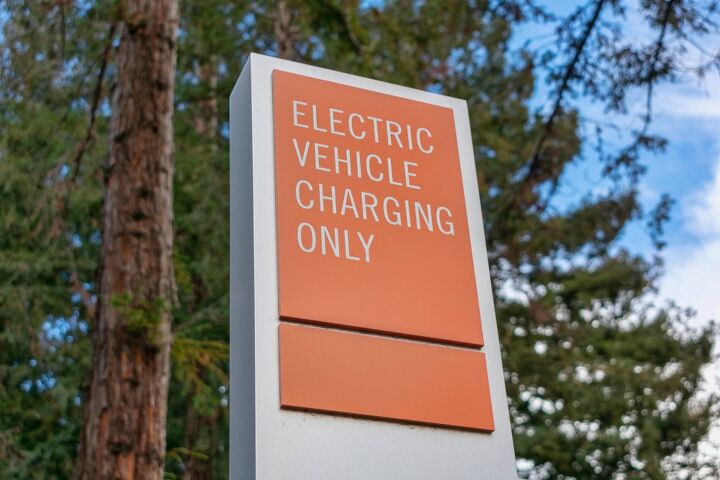


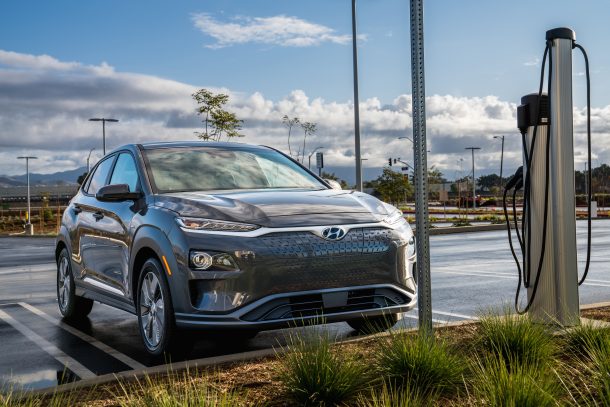
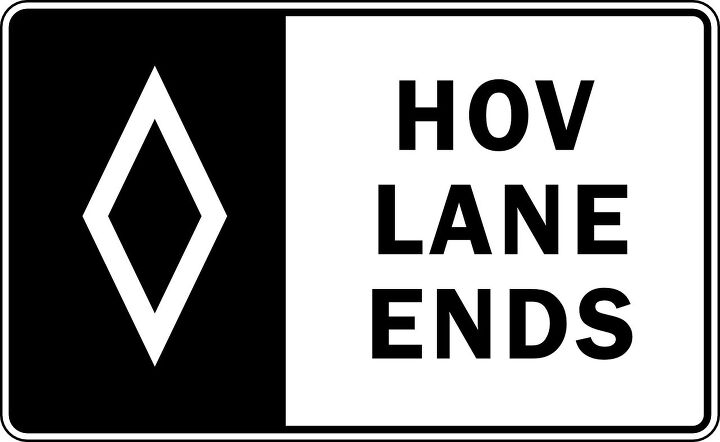
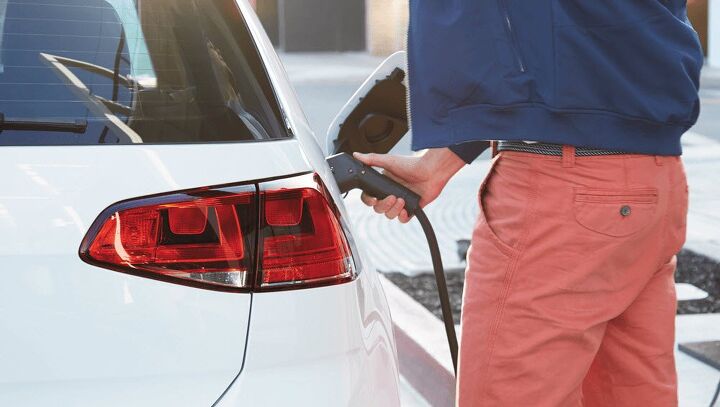


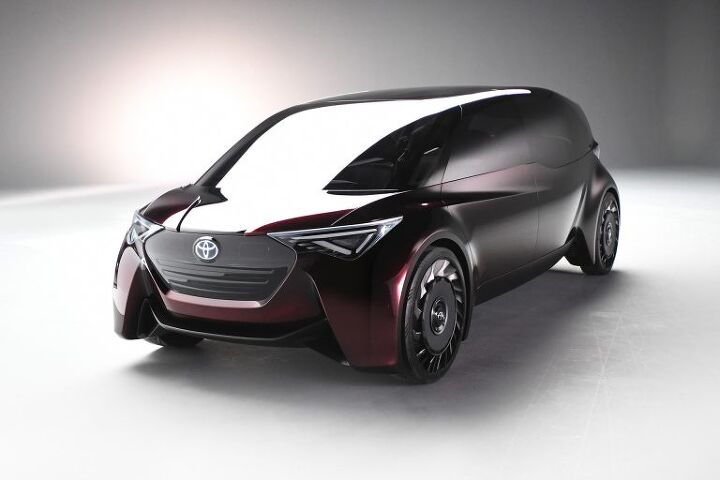
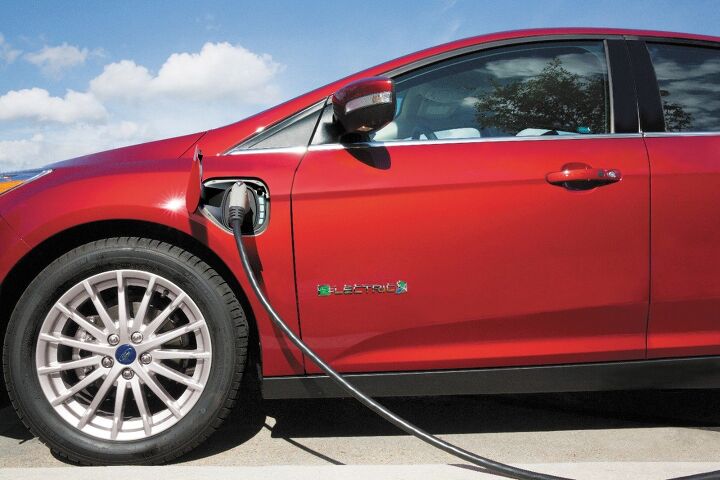
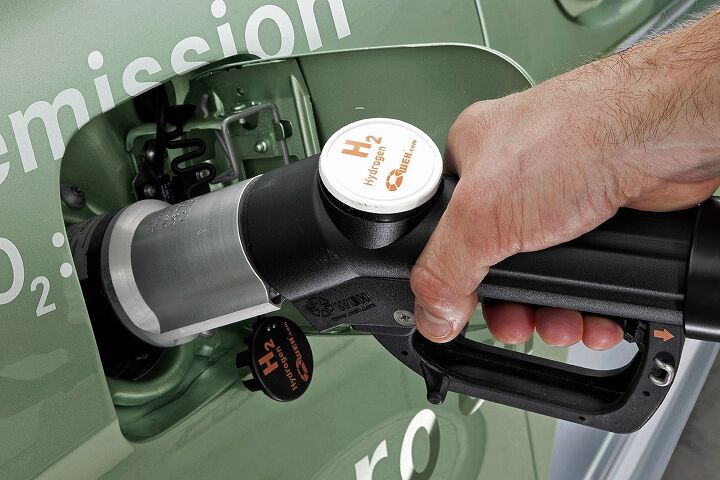
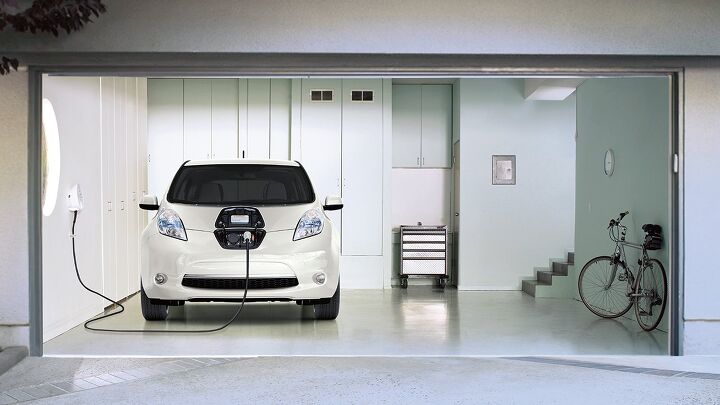












Recent Comments